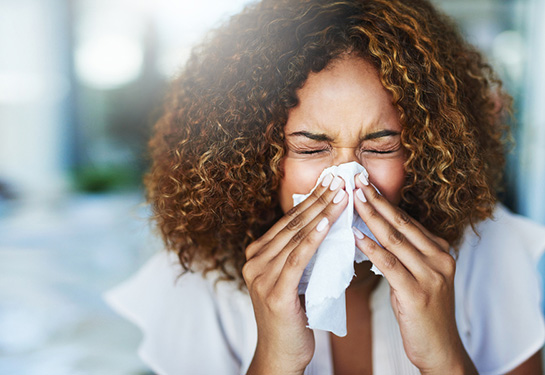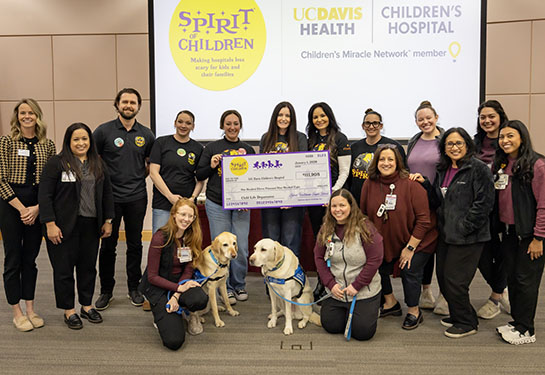Can adults get RSV?
Not just for kids: Infectious diseases expert explains how RSV can be severe for adults in high-risk groups
Respiratory syncytial virus, or RSV, is a respiratory virus that commonly causes lower respiratory illness. It’s most recognized as a childhood illness and leads to an increase in hospitalizations of children in their first or second year of life.
However, it’s a common misconception that RSV is always a mild respiratory illness in adults.
Each year in the United States, RSV leads to approximately 60,000-120,000 hospitalizations among adults over 65 years of age and 6,000-10,000 deaths among adults 65 years and older, according to the Centers for Disease Control and Prevention (CDC).
Natascha Tuznik, associate clinical professor of infectious diseases at UC Davis Health, answers questions about RSV, including why it can be severe, particularly for adults over 65, and how can you prevent an infection.
What is RSV?
RSV stands for Respiratory Syncytial Virus. It is a common, contagious respiratory virus that typically causes mild colds and their accompanying symptoms. It is known to be more serious in infants, children under two years-old, and in older adults, in particular those with compromised immune systems.
When is peak season for RSV infection?
Typically, RSV peaks during the fall and winter months, and even into early spring, when “colds” are most commonly circulating. Historically, RSV would begin to show up in October and last until March or April, but the COVID-19 pandemic has changed this pattern. This year, cases were being seen in early September.
Can RSV infections can be dangerous for adults?
Yes. Again, this comes down primarily to risk factors and coexisting conditions. Age is considered a risk factor – in this case, 65 and older. Individuals with chronic heart or lung conditions, or weakened immune systems are also at risk for more severe disease.
What are the symptoms of RSV in adults?
Typical symptoms include a cough, sore throat, congestion, runny nose, headache, mild fevers, and fatigue. More severe symptoms can range anywhere from influenza-like symptoms with more serious cough and wheezing, to pneumonia, the inability to effectively breathe on one’s own, and even death.
How do adults get RSV?
RSV is spread from person to person, by way of inhalation of infected respiratory secretions (nose or throat) from others. It may also be acquired by contact with dried, infected respiratory secretions such as shared hard surfaces and even bedding. Therefore, hand hygiene is so important.
How long will RSV symptoms last?
Most infections will resolve after 1-2 weeks unless the infection is more severe, in which case it may last longer. The cough associated with RSV can last longer, even when one is otherwise feeling better.
What should you do if you have symptoms of RSV?
In most cases supportive care is recommended. This includes common remedies such as rest, fluids, saline nasal drops or sprays, throat lozenges, decongestants (if safe to take) and over the counter pain relievers and fever reducers, specifically ibuprofen and acetaminophen (Tylenol). Cool-mist humidifiers are an excellent option, especially if living in a dry environment, in order to keep mucous and airways moist. They may also help ease airway irritation and lessen the severity of the cough. If you are at higher risk or develop more severe symptoms, you may need to see your physician or possibly even head to the emergency room depending upon the severity.
How can you prevent an RSV infection?
The best prevention is to practice excellent hand hygiene, especially if you have symptoms or have been around someone with such symptoms. Avoid close contact including hugging, kissing, shaking hands or sharing any personal items, in particular utensils and kitchen items. Wipe down any hard surfaces frequently with a disinfectant, including counter tops, doorknobs, toilet handles, and mobile phones. In addition, wearing a face mask can decrease the spread of respiratory viruses from one person to another.





